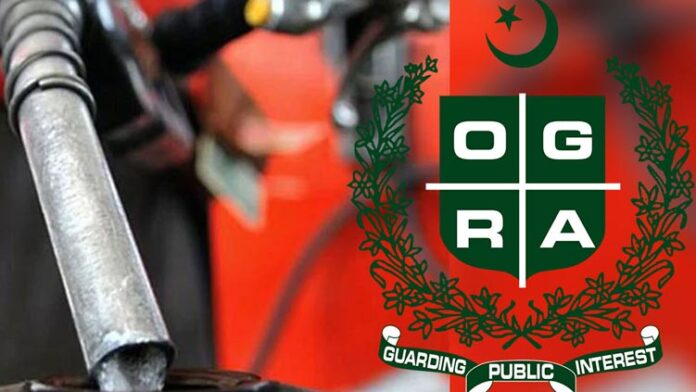ISLAMABAD:Chairman OGRA Masroor Khan informed the National Assembly Standing Committee on Petroleum that the country has ample petroleum reserves, sufficient to meet defense needs as well, and that technology is being utilized to curb the smuggling of petroleum products.
This disclosure was made by the Chairman OGRA while briefing the National Assembly Standing Committee on Petroleum which met on Wednesday under the chairmanship of Syed Mustafa Mehmood to review the quality of petroleum products, measures to curb smuggling, and the overall strategy for strengthening Pakistan’s petroleum and gas sectors.
Chairman OGRA briefed the committee extensively on petroleum pricing mechanisms. He explained that the benchmark for pricing is set by Pakistan State Oil (PSO) and that a freight margin is added to ensure uniform prices across the country. Committee member Syed Naveed Qamar criticized the misuse of the freight margin system, calling for a comprehensive review.
To enhance oversight and transparency, Masroor Khan informed the committee that OGRA is working closely with the Federal Board of Revenue (FBR) to implement a track and trace system and automate the monitoring of oil tankers. Additionally, OGRA has launched a mobile application that allows users to verify the quality of petrol at fuel stations, which is expected to help prevent the sale of substandard fuel and assist in curbing smuggling. “The fuel supply chain from oil marketing companies to petrol pumps has been fully digitized,” he added.
The meeting marked the first appearance of newly appointed Petroleum Minister Ali Pervaiz Malik before the committee. Malik emphasized his commitment to running the petroleum and gas sectors on sustainable foundations and enhancing the institutional capacity of the Petroleum Division. “Since assuming office, I have been meeting with stakeholders across the sector to strengthen the Ministry’s functioning,” Malik said, adding that efforts are underway to fill vacant positions in the Ministry.
The minister informed the committee that a comprehensive new plan is being developed for the gas sector, particularly as declining gas consumption has led to the closure of several fields. He also highlighted ongoing efforts to improve fuel quality standards and implement the long-awaited refinery policy.
Addressing concerns about petroleum smuggling, Petroleum Minister Ali Pervaiz Malik said OGRA has taken significant steps to curb illegal activities. Chairman Oil and Gas Regulatory Authority (OGRA) Masroor Khan informed the committee that during a recent protest, around 800 vehicles were stuck, and the FIA seized 16 vehicles involved in smuggling. “Strict enforcement has been applied at the Balochistan border, making smuggling nearly impossible,” added Mian Khan Bugti. However, Sardar Ghulam Abbas noted that petroleum products are still being smuggled into districts such as Attock and Chakwal from various routes.
The committee also reviewed the demands of petroleum dealers. Chaudhry Zafar Elahi, representing the Petroleum Dealers Association, stated that dealers had requested a Rs 2 per litre increase in their margins. However, OGRA had only recommended an increase of Rs 1.40 per litre, which has not yet been implemented.
During discussions, committee member Shahid Ahmed observed that smuggling activities have now reached district levels, making control measures more challenging. He stressed that effective anti-smuggling efforts must begin at the borders. Chairman Syed Mustafa Mehmood added that OGRA has been asked to extend its efforts into urban areas to deal with smuggling within cities.
The committee also debated Pakistan’s ability to import petroleum products from Iran. Responding to questions from Gul Asghar Khan and Asad Alam Niazi, Minister Ali Pervaiz Malik clarified that Pakistan cannot currently purchase oil from Iran due to the absence of formal banking channels. “We are bound by IMF and FATF conditions, and much of our economic activity is constrained under these international agreements,” Malik said, suggesting that the Finance Ministry and the State Bank could provide a more detailed briefing on the matter.
On the issue of liquefied petroleum gas (LPG), officials informed the committee that a Memorandum of Understanding (MoU) has been finalized between Jamshoro Joint Venture Limited (JJVL) and Sui Southern Gas Company (SSGC) for LPG supply operations. The Special Investment Facilitation Council (SIFC) played a crucial role in facilitating the agreement, which now only awaits approval from SSGC’s board, according to Minister Malik.
Addressing concerns about the availability of petroleum products, Chairman OGRA assured the committee that Pakistan has ample petroleum reserves, sufficient to meet domestic and defense needs.
In his closing remarks, Chairman Mustafa Mehmood emphasized the need for stronger border controls to prevent smuggling and proposed that the committee seek a comprehensive briefing from the Ministry of Interior regarding anti-smuggling efforts.




